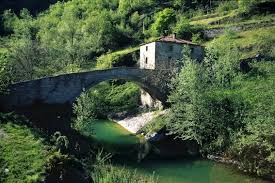On 30th November 2021, Marche Region and University of Camerino organized a crash course for transferring methodology and technologies useful for the development of a Digital Tourist Information center.
The aim of this activity was to introduce the participants to the importance of linking technology, innovation and sustainable tourism as a central point for all the stakeholders in the tourism industry. The main targets of this training path are local policy makers , as well the private sector such as travel agencies, representative of hospitality and accommodation operators, tourism guides, etc. and civil sector operators such as associations operating in culture, tourism , heritage valorizations, nature protections).
Marco Cocciarini, CEO of Globe Inside, explain how digitalization is changing the way people live, work, and travel, and has opened up new opportunities for tourism businesses to compete in global markets. He informed participants on good practices and touristic development politics and he introduced the new uses of technology and the wider applications for sustainable tourism.
Giancarlo Dall’Orco, Destination manager of the Monte Amiata-Toscana and expert in territorial touristic marketing explained that “today, being a tourist destination that attracts tourists means much more. It means offering an added value that fascinates and satisfies the needs of current tourists. For a territory to evolve and become a tourist destination, it is first of all necessary to start from a territorial analysis by asking: what are the attractions that we can offer to tourists? What are our particularities? What makes us a unique and interesting territory? From here, from the recognition of its peculiarities and potential, as well as the weak points in which to invest in order to improve, it is possible to start promoting the area.” He presented the case study of Borghi by Host where the regeneration project of internal area or little countries areas are integrated with a participative process for designing an integrate touristic project”.
In the next few days, short pillar videos will be available online. They will focus on:
· Innovative tourism product as a driving force for the promotion of tourism in inland areas
· School tourism as a way of approaching minor cultural sites
· Involvement of local communities as a lever for sustainable tourism development
· Development of local tourism starting from seaside resorts
· Innovation in the provision of services by tourist information offices

